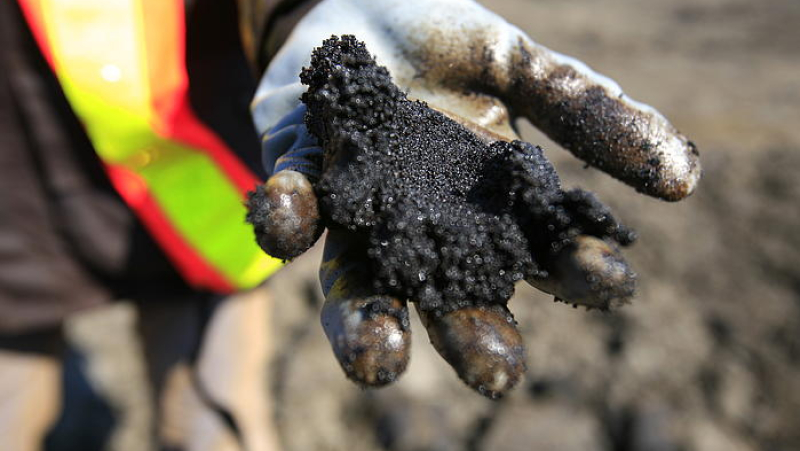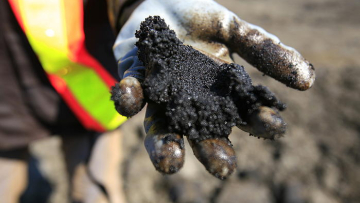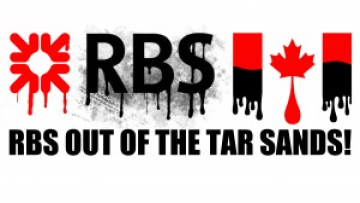Project – On record
This profile is no longer actively maintained, with the information now possibly out of dateBankTrack

Project – On record
This profile is no longer actively maintained, with the information now possibly out of dateBankTrack
What must happen
Private banks must not participate to the funding of these projects, whatever forms it takes, be it project finance, general corporate loans or underwriting of shares or bonds on the stock markets of the companies involved.
| Sectors | Oil and Gas Extraction |
| Location |
|
Located in the western Melaky region of Mahajanga pronvince are the two most developed tar sands projects of Madagascar, named Bemolanga and Tsimiroro. The size of both fields is approximately 70km2 in area.
Bemolanga is estimated to contain over 16.5 billion barrels of oil-in-place and almost 10 billion barrels recoverable. Madagascar Oil (the largest onshore oil operator in the country) estimates that at full production Bemolanga could produce as much as 180,000 barrels per day over 30 years. The depth of the field is about 15 meter below the surfaces making it ideal for open case mining.
The information available on the Tsimiroro field is varying. Madagascar Oil's highest estimate is 4.5 billion barrels of oil in place with a production capacity of 100,000 barrels per day over 20+ years. At the same time, an independent estimate made in 2009 was of only 3.5 billion barrels and 900 million recoverable. The depth of the field is between 40 and 300 metres below the surface.
The Tsimiroro field is 100% owned by Madagascar Oil, while the Bemolanga field is owned 60% by Total and 40% by Madagascar Oil.
Social and human rights impacts
The main social concerns related to this project include:
- Displacement
- Resettlement
- Conflict
- Threats to culture
- Increased insecurity
- Political instability
- Inability to defend themselves
- Increased poverty
- And more
-readmore-
More detailed explanation:
Western Madagascar is very sparsely populated, with a density of 0 to 4 people per km2. The commune of Ankisatra, the location of the Tsimiroro field, has a population of less than 3,000. While the low population means less people are at risk of displacement because of the tar sands projects, it also means that the few people who do live in the area have less ability to defend themselves against that potential displacement. Further risk multipliers include the high levels of poverty in Madagascar (the World Food Programme claims 60% of the country is ‘extremely poor'), and the low levels of education.
In addition, the political situation in Madagascar is unstable. The current government is considered illegitimate by the United States and the European Union, and is suspended from the African Union, having come to power via a military coup d'etat in March 2009. Talks to form an inclusive transitional government fell apart in December 2009, and it is unclear whether any environmental and social issues relating to the tar sands development will be dealt with in a transparent manner.
The Production Sharing Contract (PSC) signed for both projects by Madagascar Oil with the government of Madagascar is perhaps even more heavily biased in favour of the oil companies than the similarly exploitative Kashagan oil field PSC in Kazakhstan.
90% of the recovered oil is considered Cost Oil (that is, it goes to the oil companies to cover the costs of their investment), with the remaining 10% of oil produced divided 90/10 between the company and the government for the first ten years of the contract, 80/20 for the following ten, 70/30 for the next decade, and 60/40 for the remaining life of the field, meaning that after thirty years of commercial exploitation the government of Madagascar will receive only 4% of the oil. Madagascar Oil’s view that the contracts “were negotiated at a very favourable time and contain attractive terms and conditions” is something of an understatement. Full Friends of Earth Report here.
For more information please read the Friends of the Earth Europe report.
Environmental and climate impacts
There are also many environmental concerns. Such as:
- Habitat destruction
- Threatening of species
- Environmental destruction
- Biodiversity loss
- Climate change
- And more
-readmore-
More detailed explanation:
On the western edge of the Tsimiroro field is the 1,520km2 Tsingy de Bemeraha nature reserve, a UNESCO World Heritage site since 1990. The area was awarded UNESCO status because of its limestone karst landscapes, undisturbed forests, mangrove swamps and rare animal species (it is the only place in the world where the armoured leaf chameleon can be found). Around half of the reserve is designated as a "strict" or "integral" reserve, meaning no development or tourism is allowed. Despite this, UNEP claims that "there is no management plan or zoning [...] boundaries are not marked [...] [n]o effort is made to patrol the Reserve or prevent legal infractions".
East of Bemolanga lies the smaller reserve of Ambohijanahary. There is little public information about this area, and what little there is highlights that its only real protection is its inaccessibility. Madagascar is a highly biodiverse country, with up to two-thirds of its species being endemic to the country.
For more information please read the Friends of the Earth Europe report.
2011
2011-05-26 00:00:00 | Latest update
On May 20, 2011, Total SA of France sought a year's extension of the 3102 Bemolanga license in Madagascar. A decision should be made by mid-June by the Office for National Mining and Strategic Industries. Total stated it would explore for conventional oil if the license were extended. Read more.
In a Reuters news article, information was released that Madagascar's government has suspended tenders for 225 offshore oil blocks until further notice. The country's mines and hydrocarbons minister, Minister Mamy Ratovomalala, told reporters that there were plans to launch tenders for the blocks in the Morondava basin, along the Indian Ocean Island's western coast. Even though there is a strong interest from foreign investors exploration has been halted due to political crisis until further notice.
A 2008 steam injection pilot project at Tsimiroro produced 150-200 barrels a day, and Madagascar Oil drilled 50 wells in the area in 2007 and 2008. From 2010, the joint venture will be running another pilot project, this time for three years, before deciding whether to proceed with commercially developing the field.


